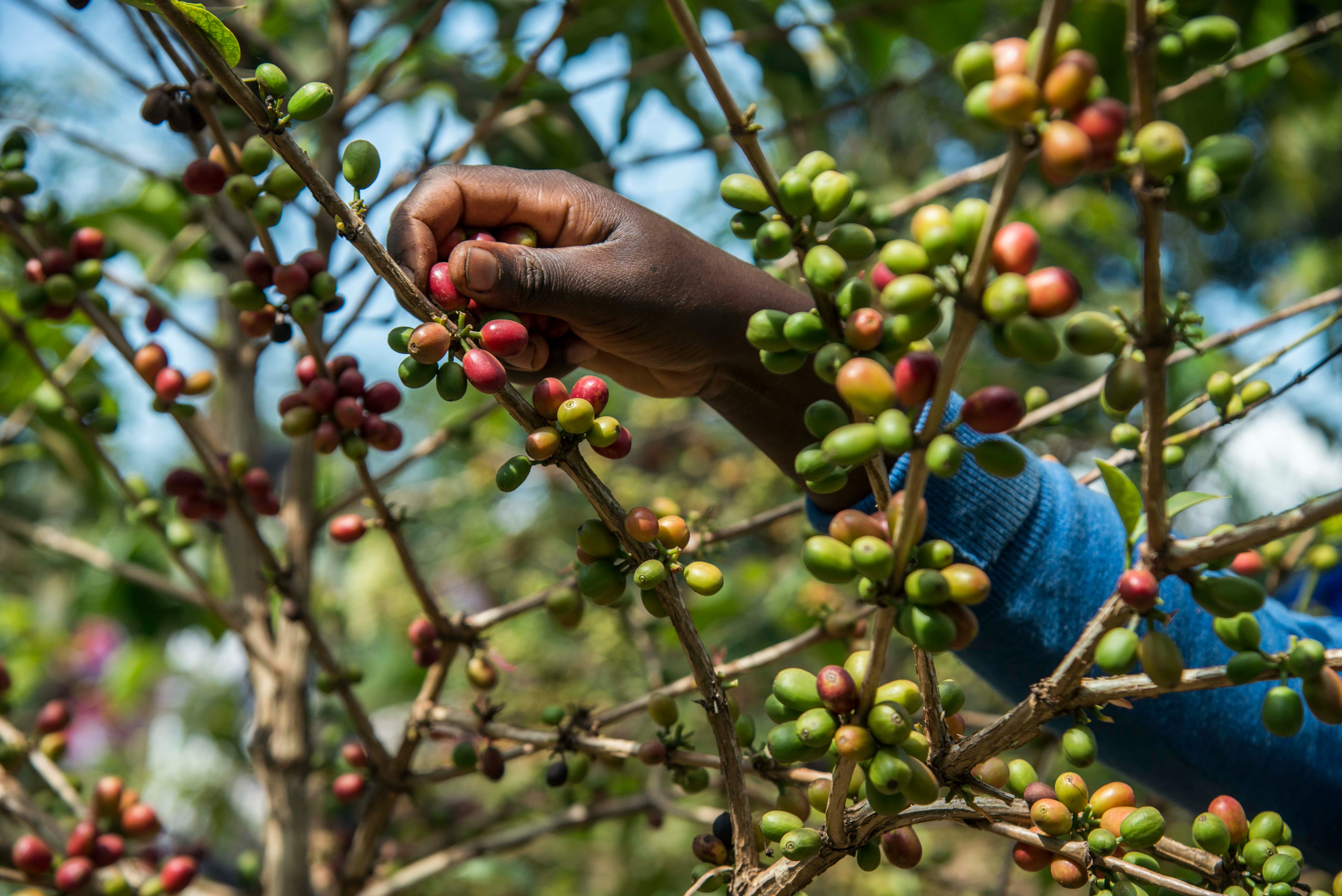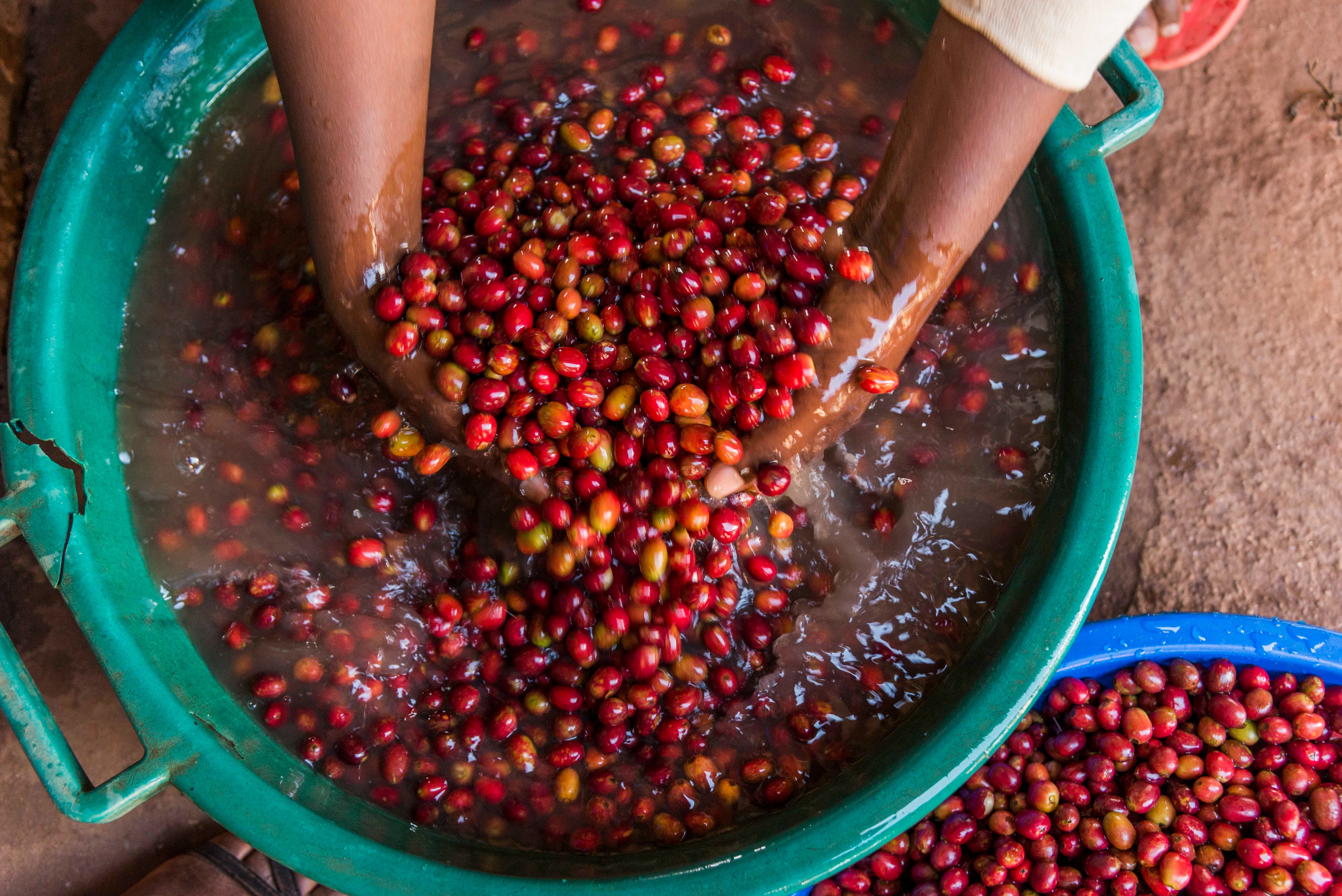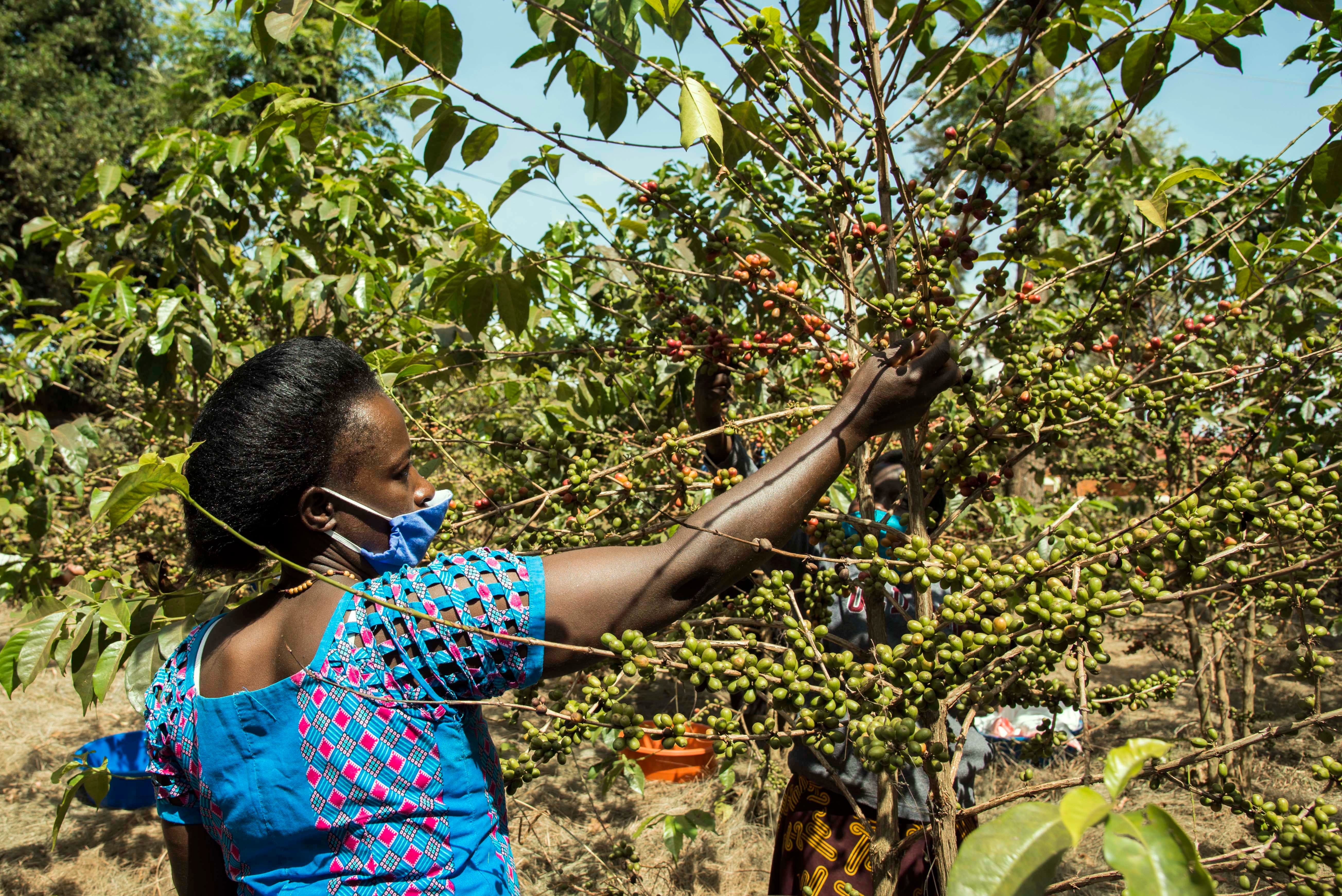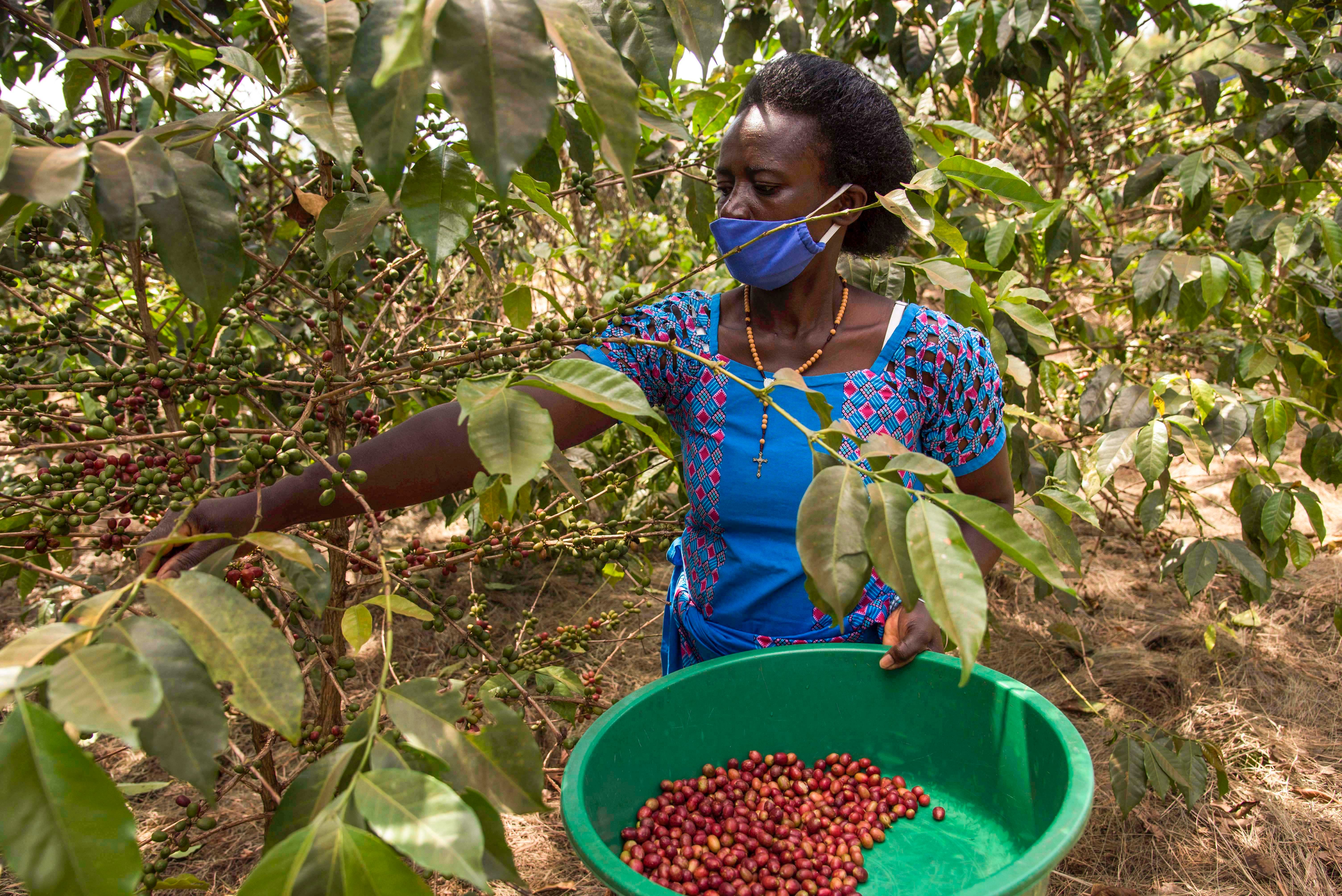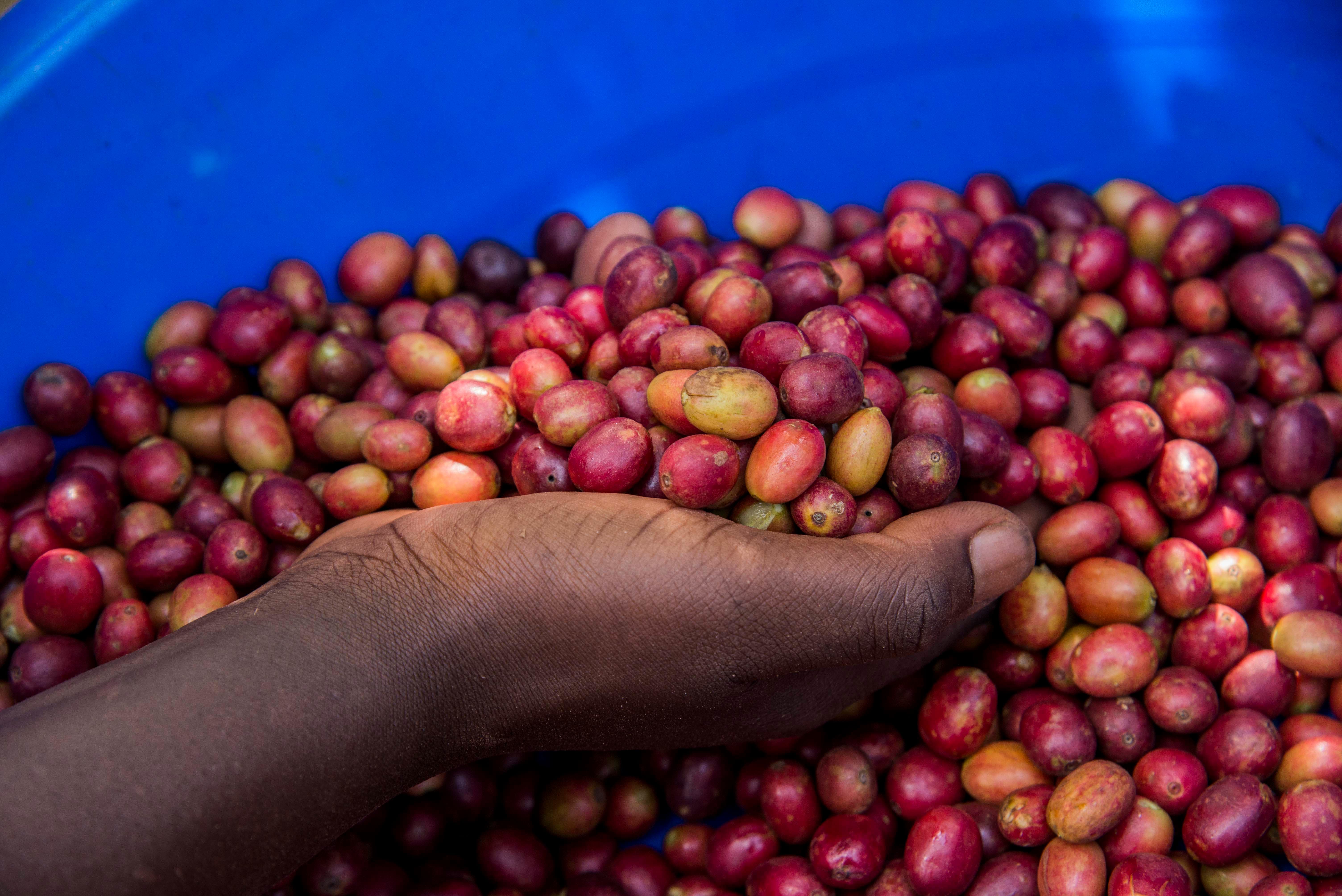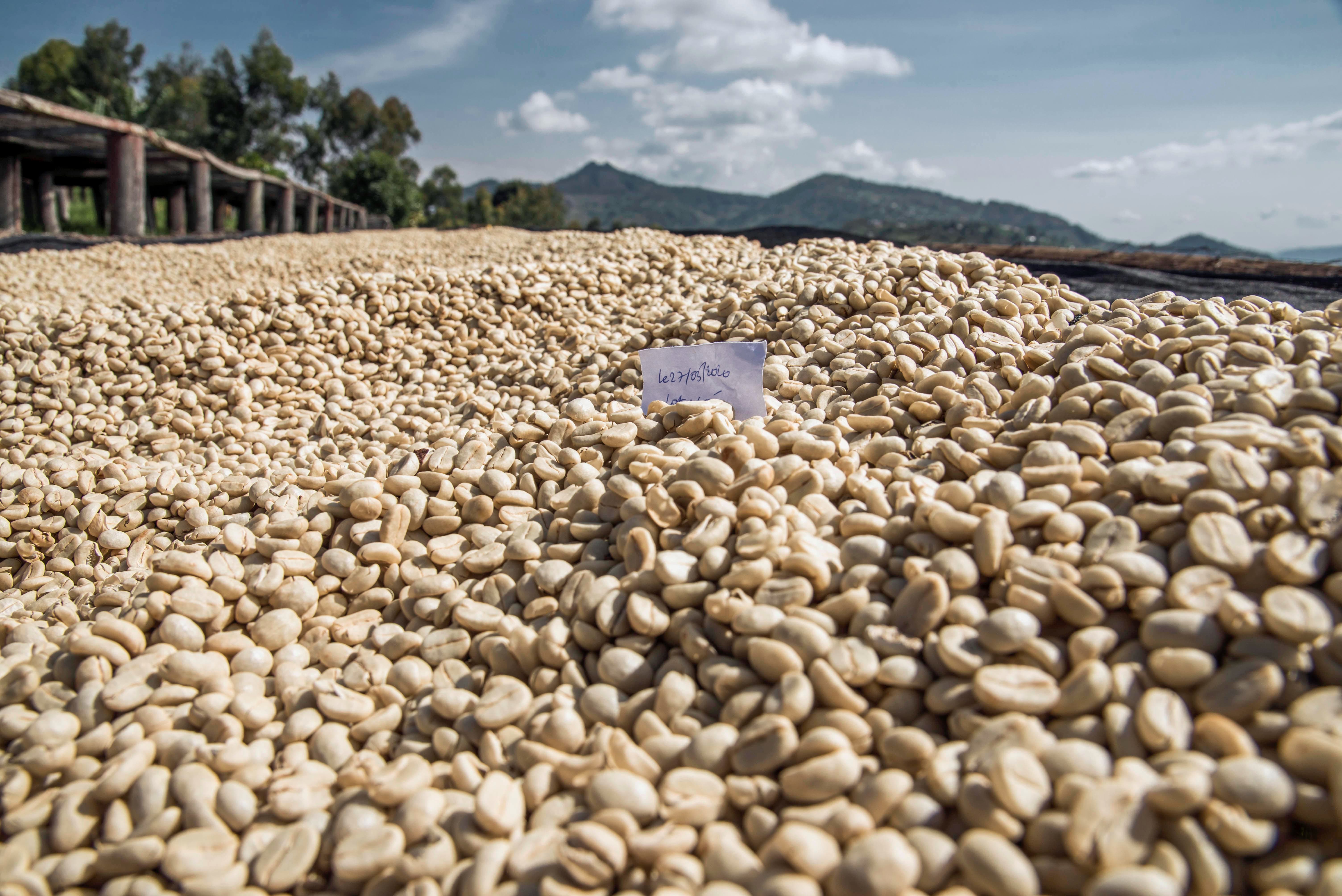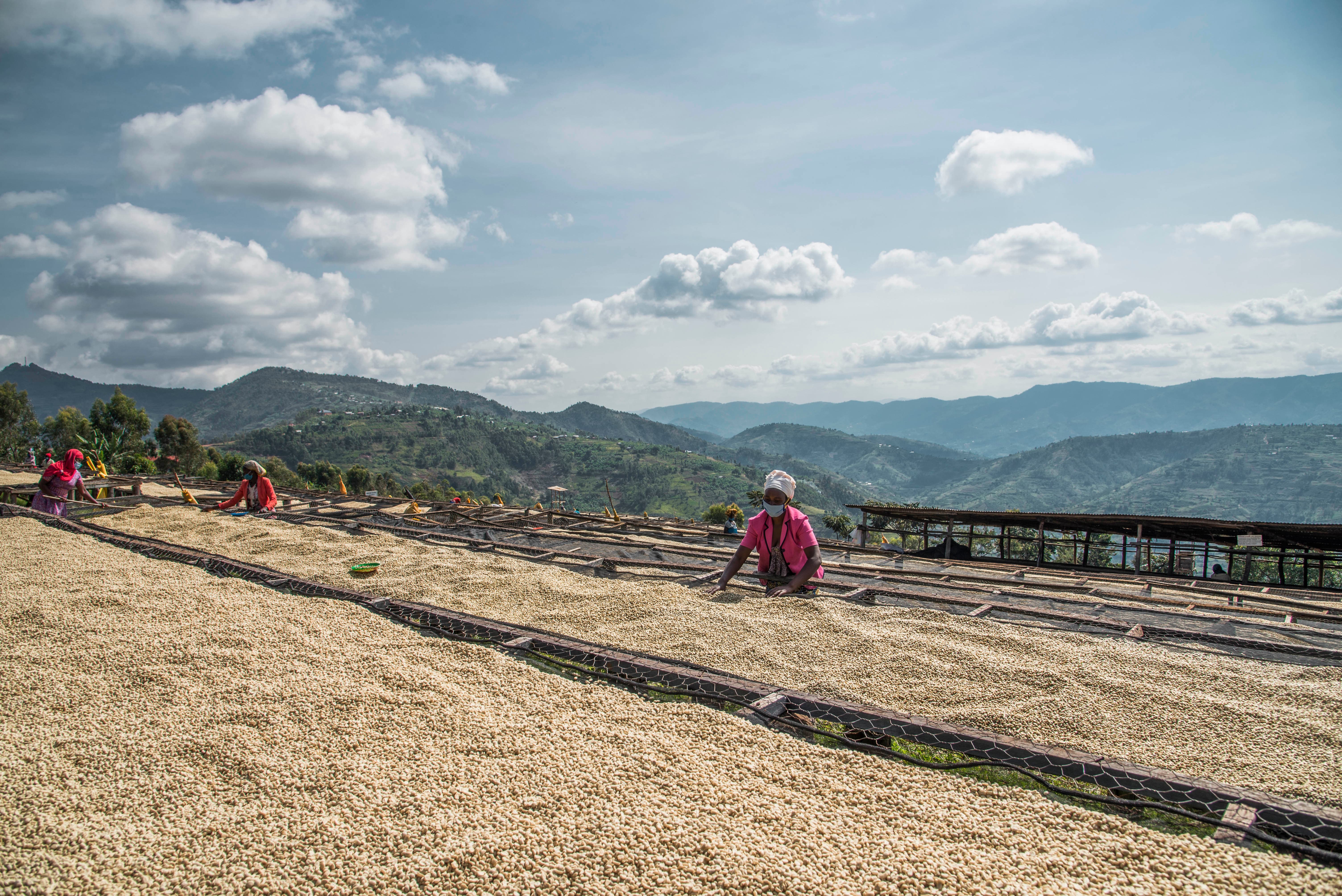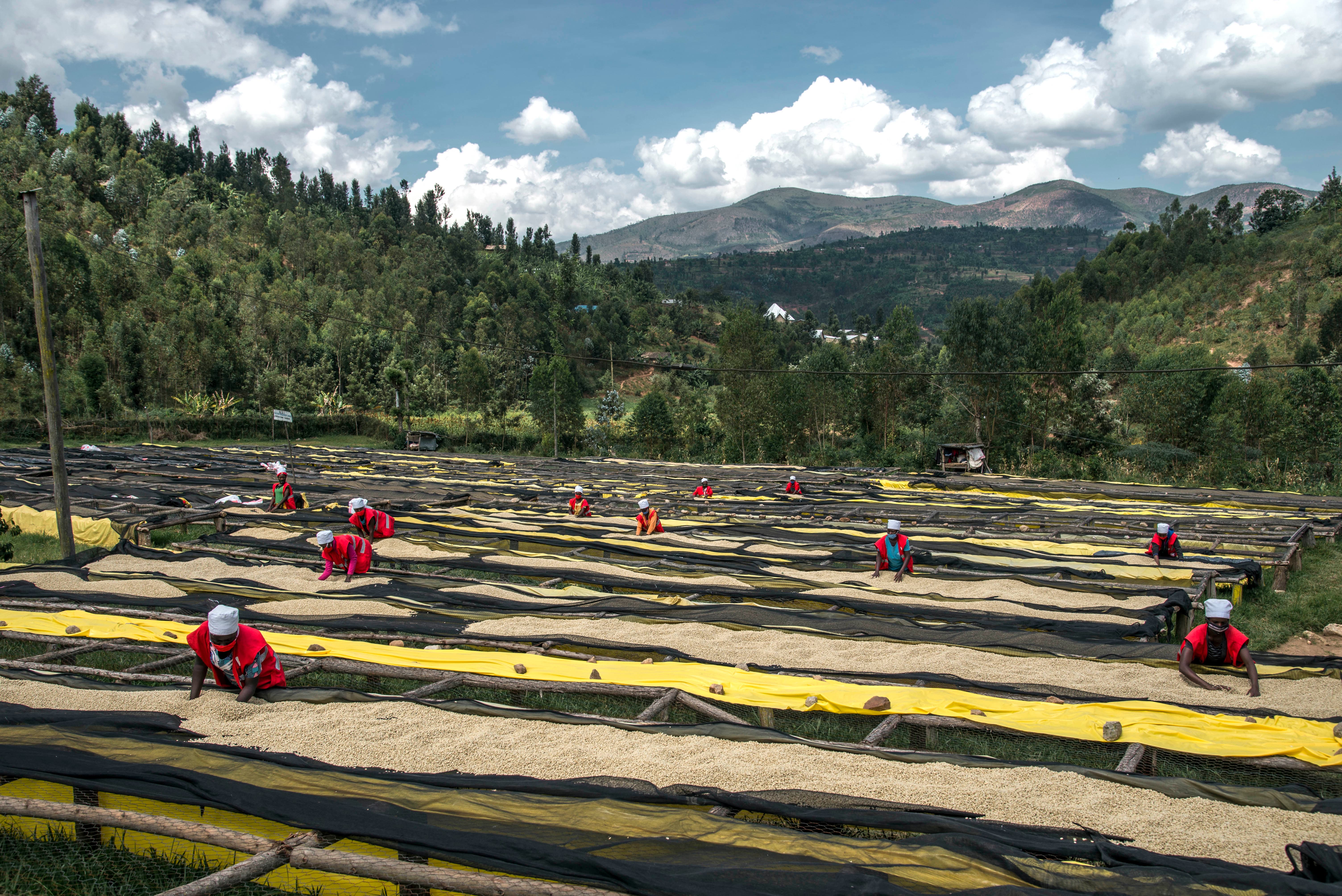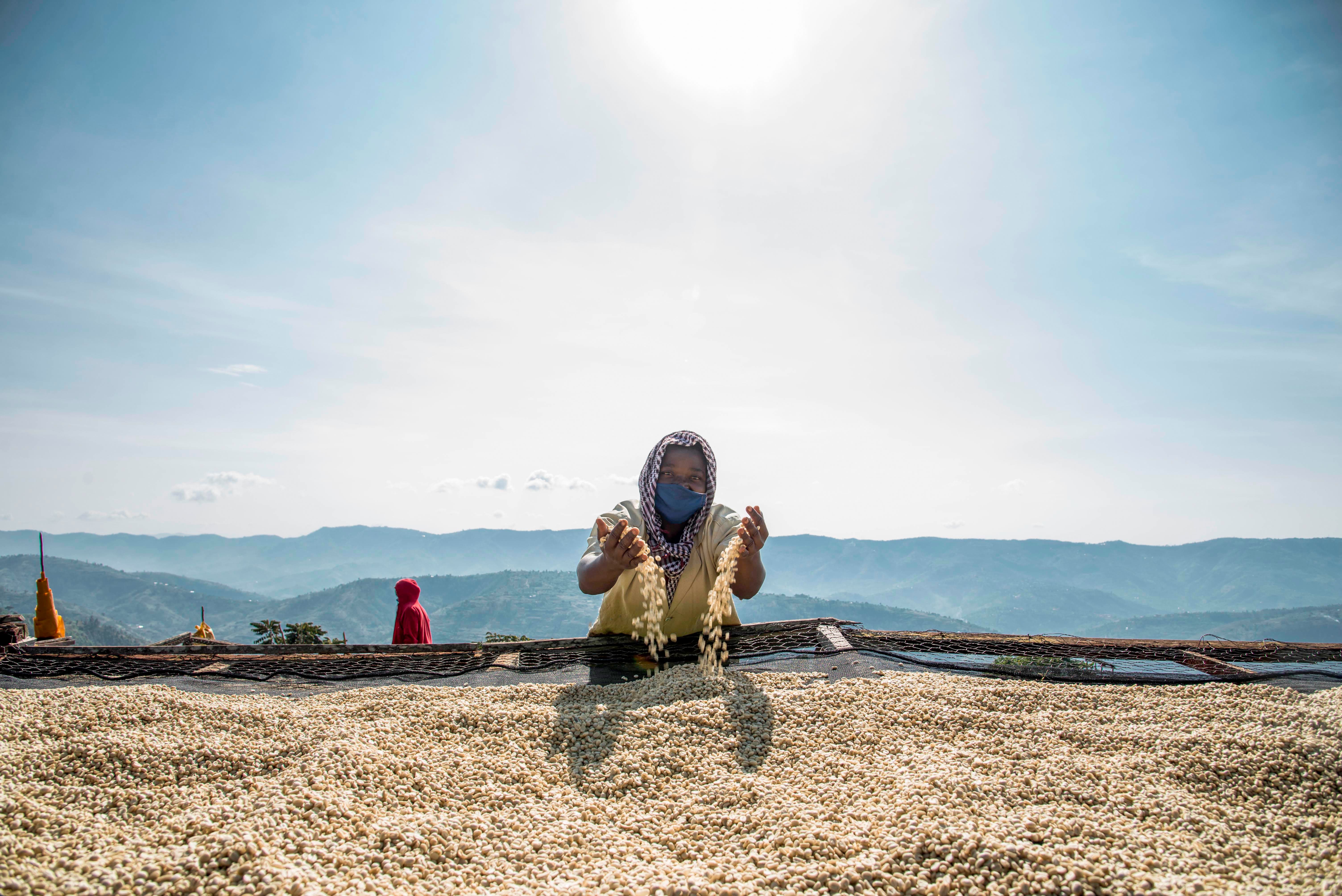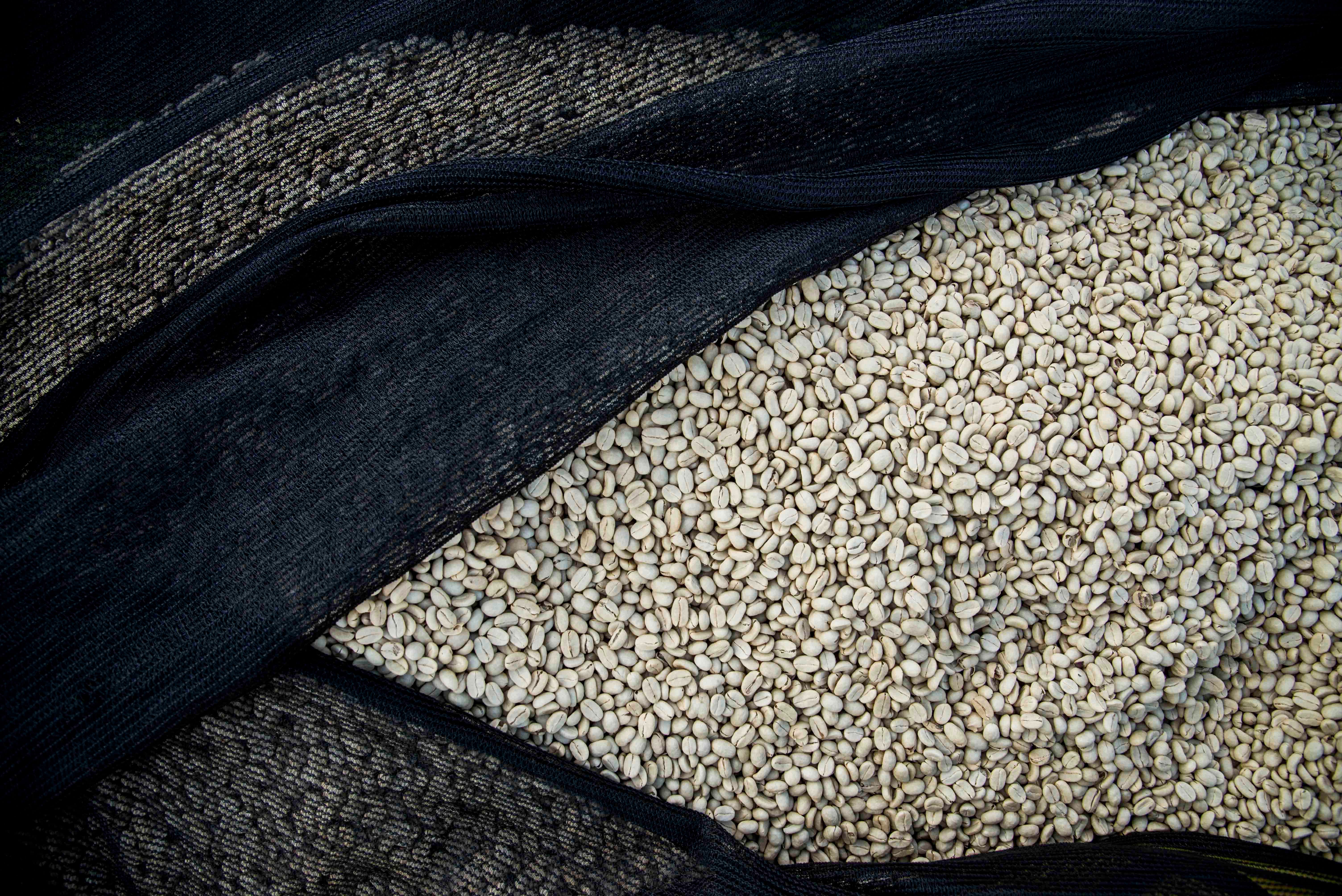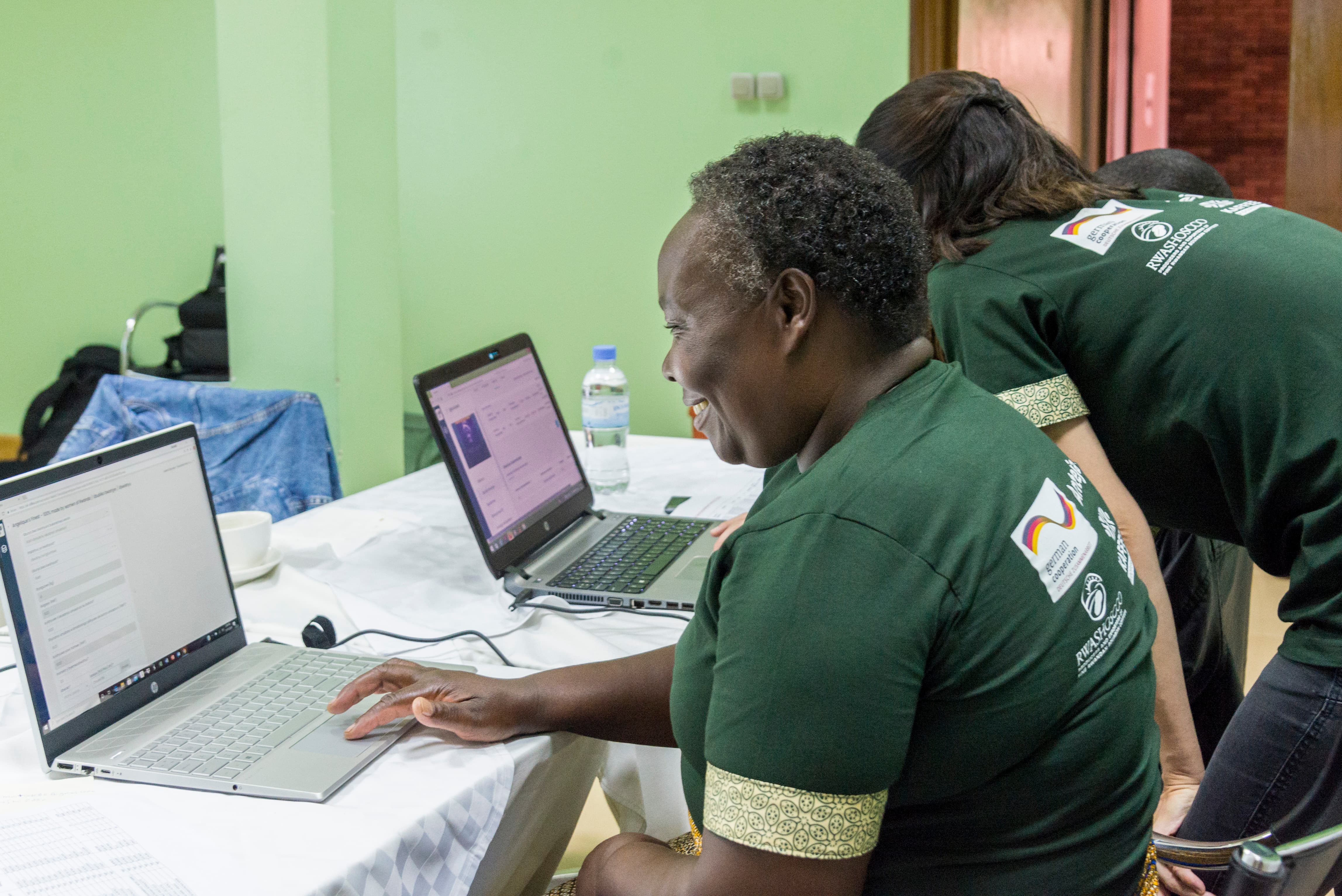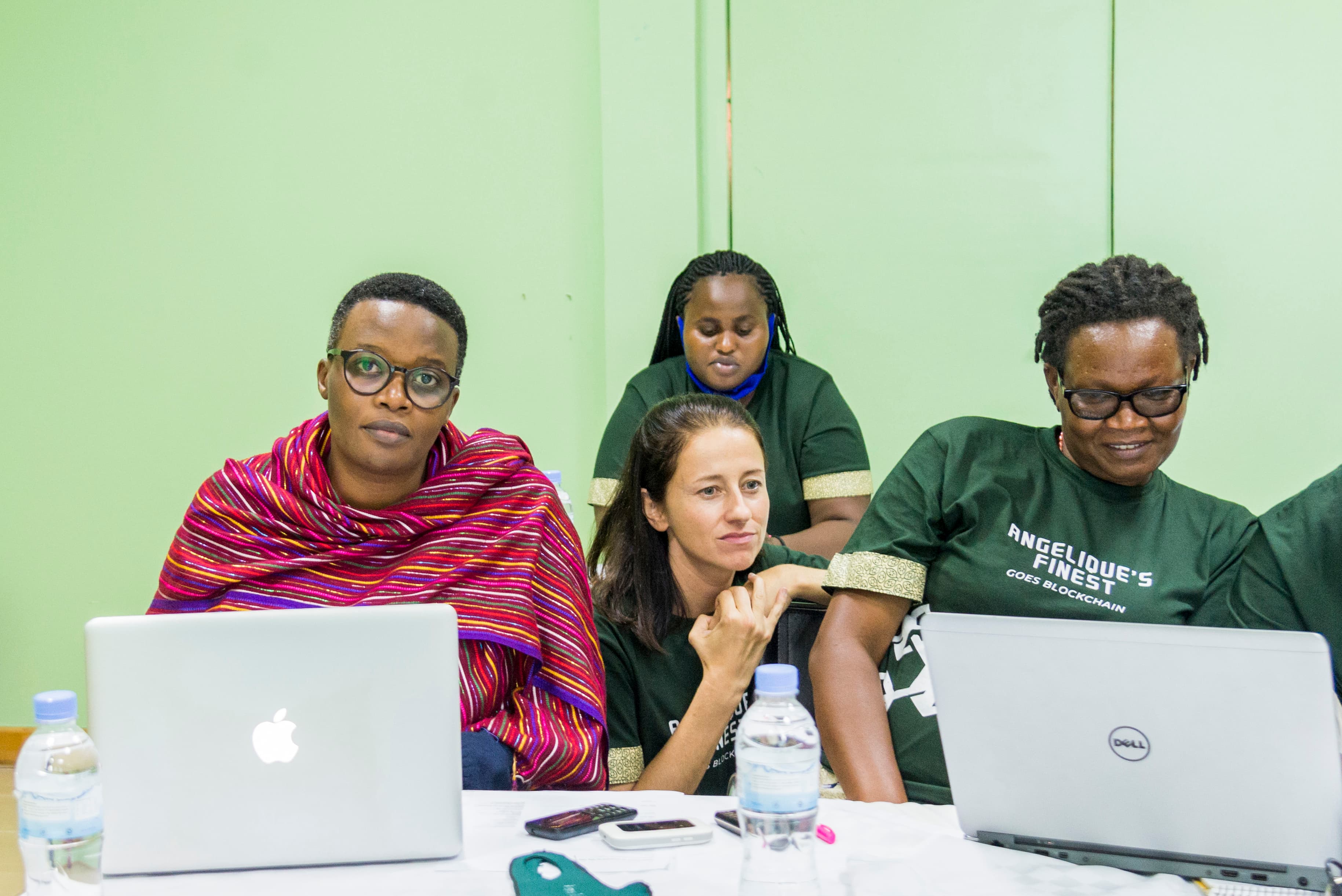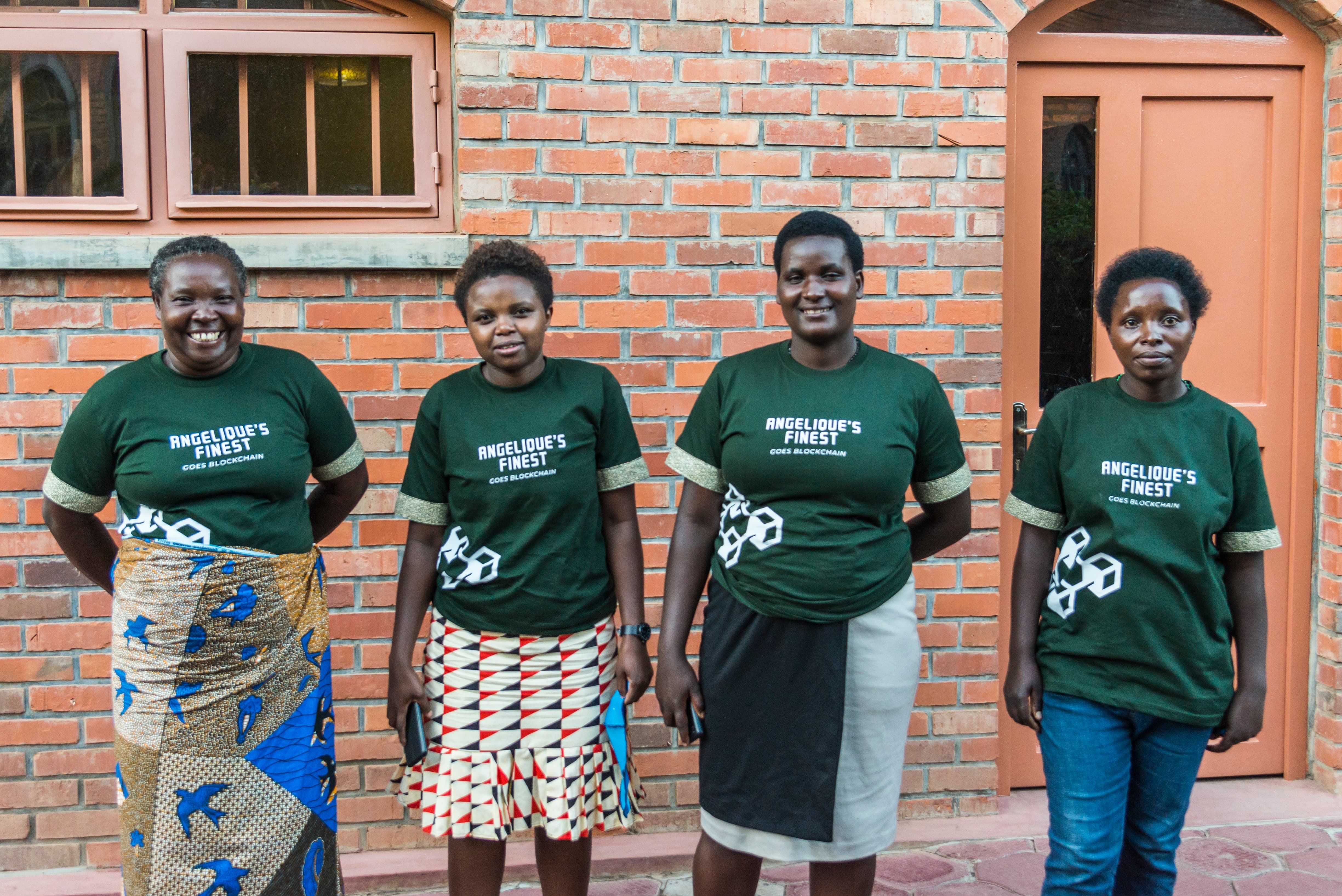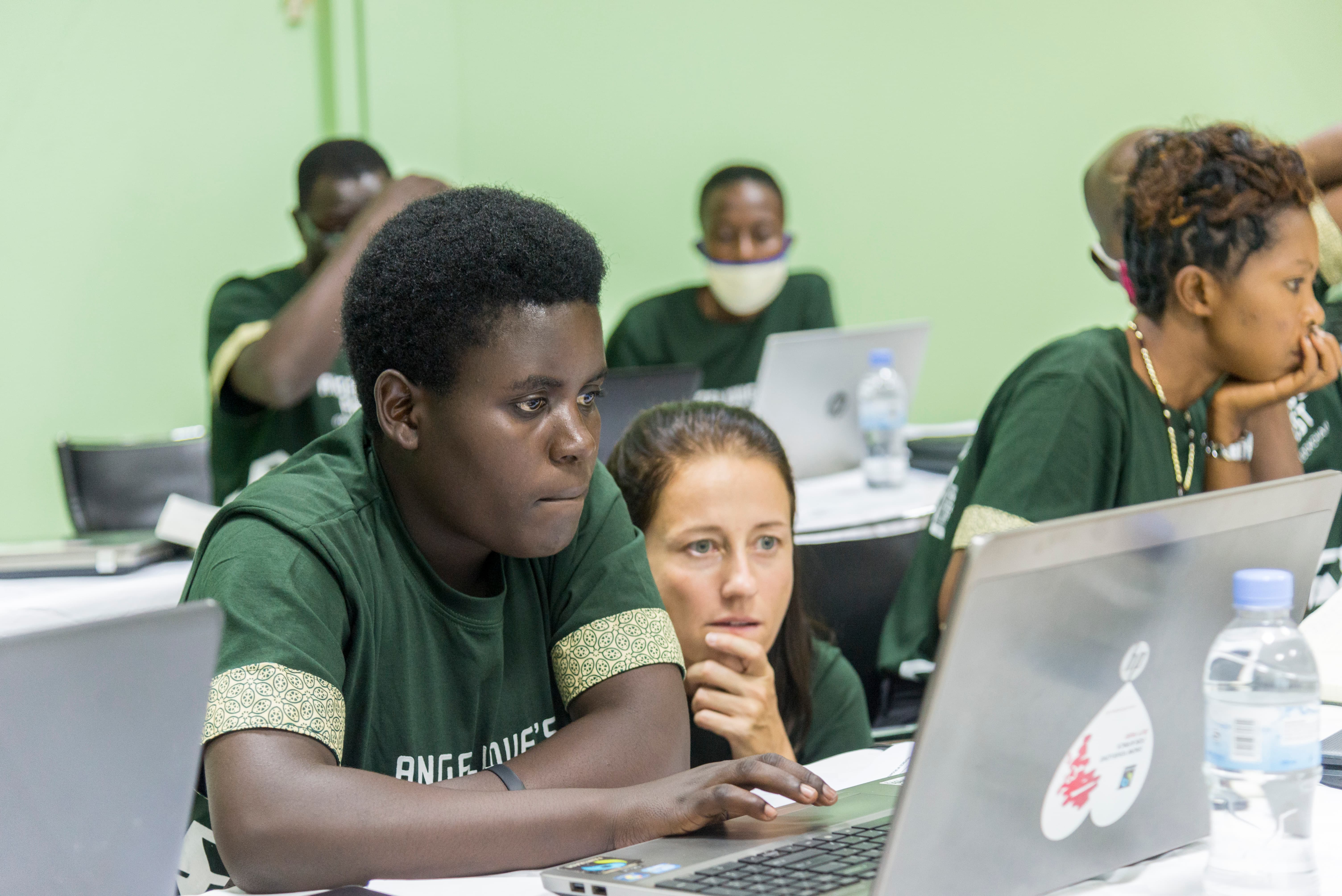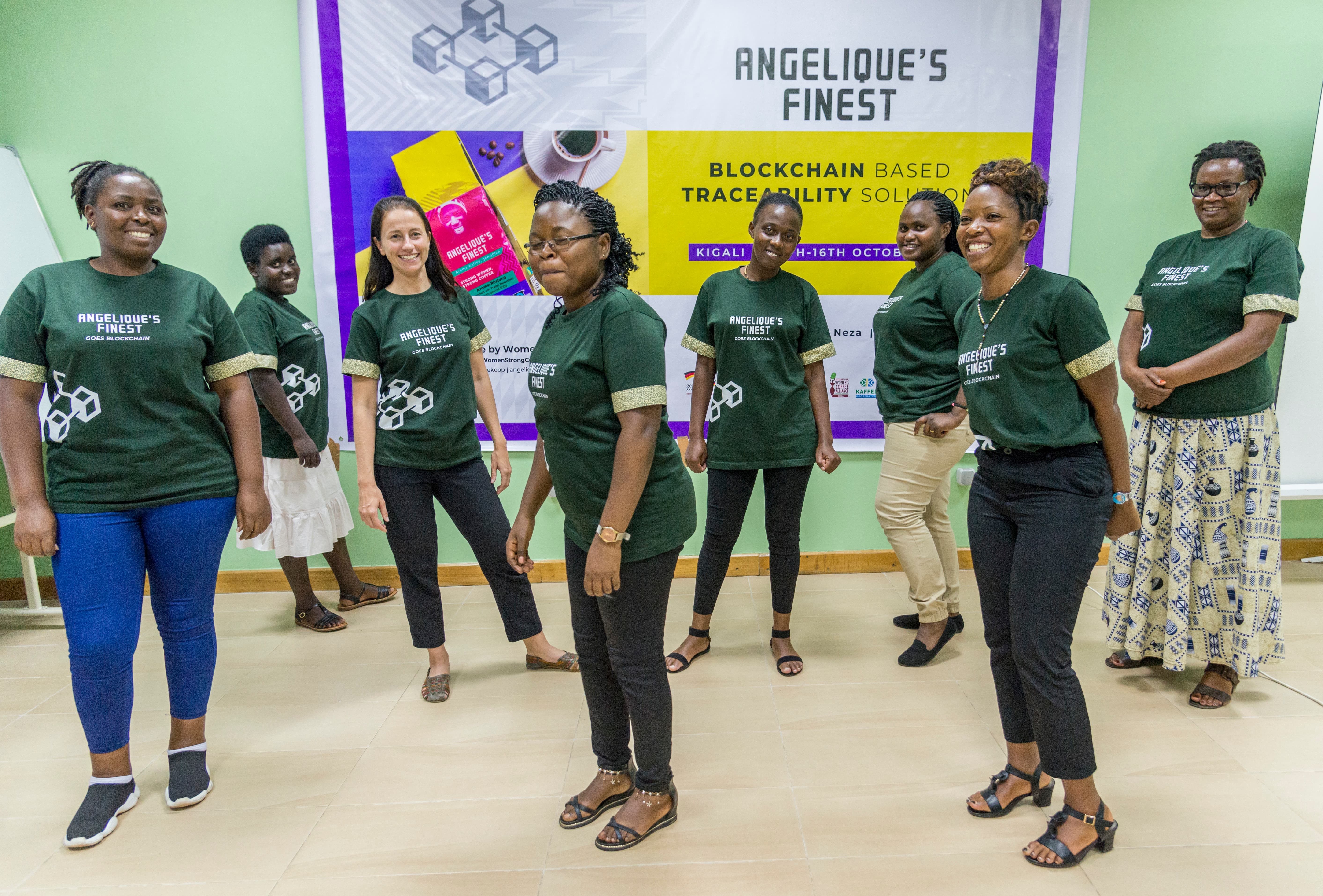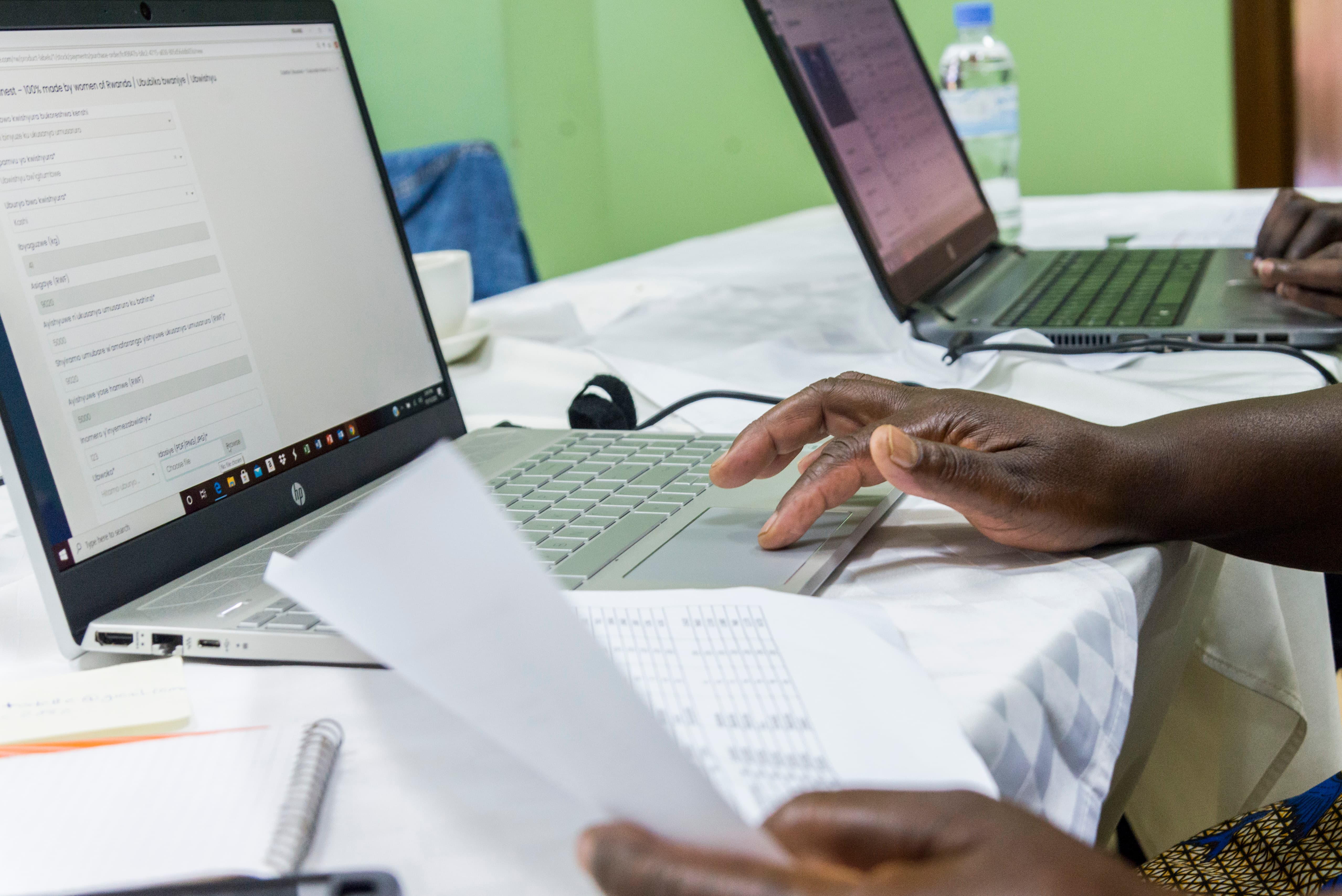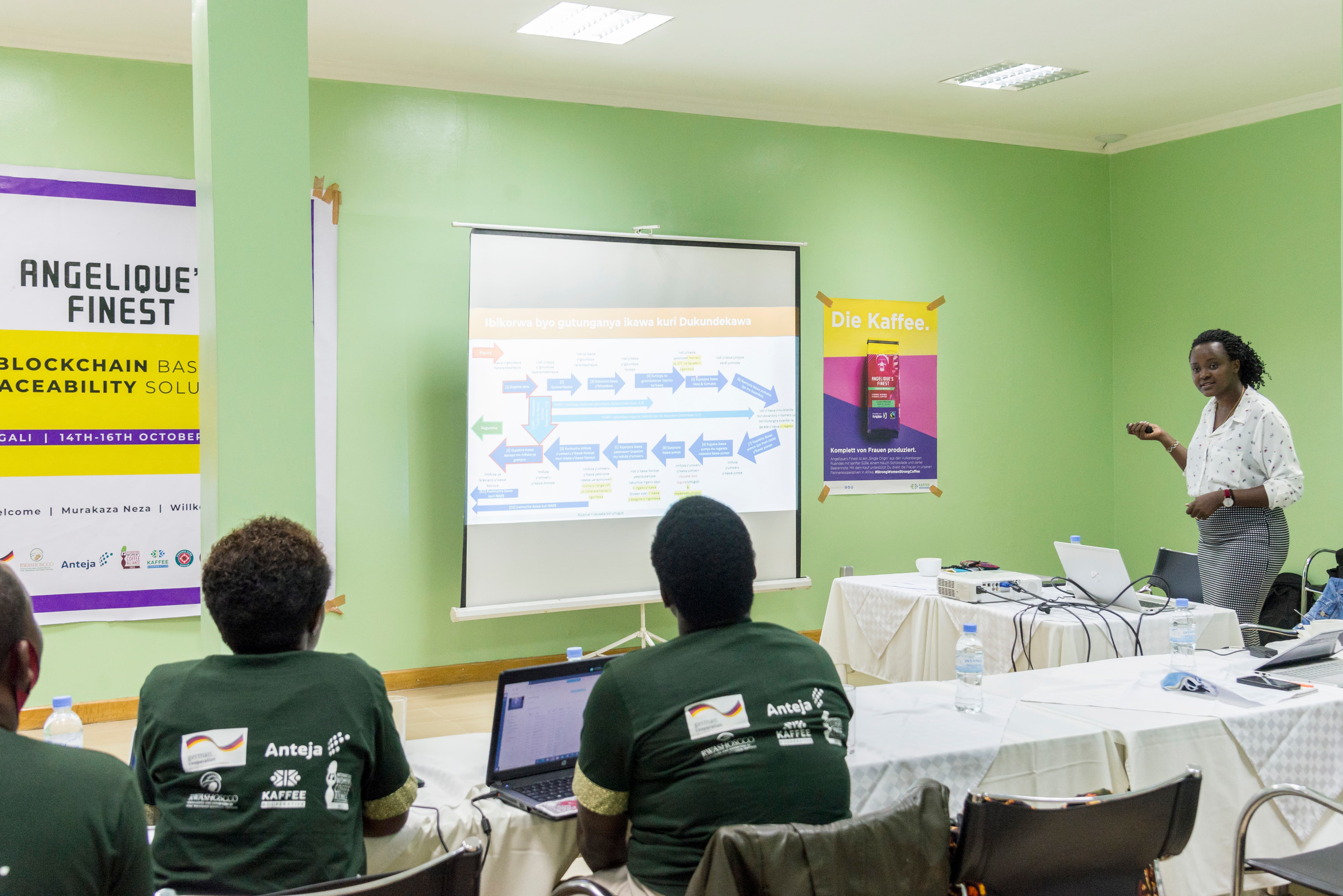INA in Rwanda: Digital traceability for coffee and other agricultural products with INATrace
In 2020, INA launched its INATrace pilot project in Rwanda, with the aim to achieve digital transformation in a supply chain for a speciality coffee cultivated solely by women. Although they have been producing coffee for the German market for many years, consumers in Germany could find out little about the country of origin and the production process. Only very few global supply chains provide access to information about the social structure and economic conditions of the coffee producers and their farming practices. INATrace was developed as an innovative open-source digital solution to ensure traceability in agricultural products and thus promote transparency in agricultural supply chains.
INATrace is a software that digitally documents the path taken by an agricultural commodity from the time it is delivered to the cooperative through to the finished product. This transparent supply chain enables companies to identify problems and to fulfil their due diligence obligations. Consumers of the final product in Germany can also obtain important information – about prices paid or actors involved – by scanning a QR code on the product packaging. This allows them to make more sustainable purchasing decisions.
Coffee from Rwanda
Coffee is one of Rwanda’s main exports and is sold in large quantities to Germany. However, the price of coffee on the world market remains permanently low and is highly volatile. Poor yields, high production costs and depressed prices mean that smallholder families struggle to make a living from coffee cultivation. Women are particularly affected by this.
Since the start of the pilot phase, the INA project has been working closely with cooperatives that have joined forces to form the Smallholder Speciality Coffee Company (RWASHOSCCO). This company is entirely in the hands of the producers and takes care of the marketing, roasting and export of the coffee. Two of the cooperatives are exclusively women’s cooperatives, which supply coffee for the Angelique’s Finest brand. Kaffeekooperative GmbH markets Angelique’s Finest coffee in Germany and uses QR codes on the packaging to provide information on prices and the producers.
From transparent supply chains to deforestation-free supply chains
The INA project in Rwanda is a pioneering pilot project that demonstrates the applicability of the traceability solution and at the same time emphasises its importance for farmers in Rwanda. The data obtained (quantities processed, prices paid, productivity quotas, etc.) allow the cooperatives to gain new insights into their internal processes while access to further information about prices along the supply chain can pave the way to fair remuneration.
Against the backdrop of the new EU regulation on deforestation-free products, it will soon also be possible to trace agricultural commodities back to the farmers’ fields with the help of INATrace. In combination with satellite images, these field boundaries can provide the initial evidence that that the coffee recorded is not associated with deforestation.
How we work
INATrace is being developed on behalf of the Federal Ministry for Economic Cooperation and Development (BMZ). While the INA digitalisation team is responsible for management, strategy development and consultancy, the external IT service provider Anteja is responsible for implementing the technical aspects of INATrace.
To carry out the pilot projects in Rwanda, INA works with the staff of the GIZ country office, local organisations, advisors, various NGOs (International Women’s Coffee Alliance, SaferRwanda), and of course with local producer cooperatives.
The INATrace pilot project is being developed and implemented in line with the Principles for Digital Development. In other words, the source code of the software is freely available for use at the technical level. The project also addresses the social impacts of digitalisation, such as the digital divide and the digital gender gap, and INATrace users are actively involved in efforts to improve and refine the software, in accordance with the Design with the User principle.
